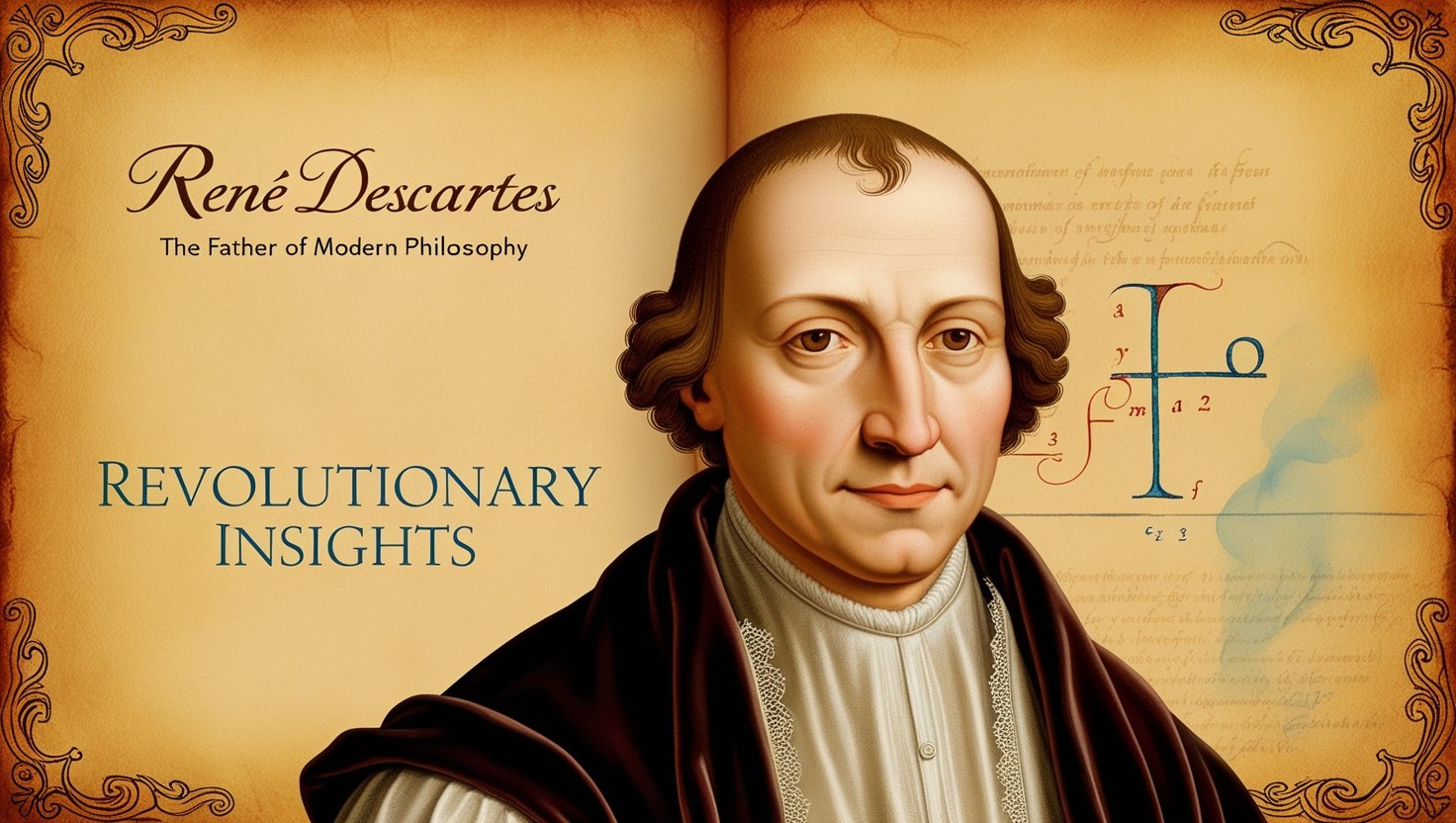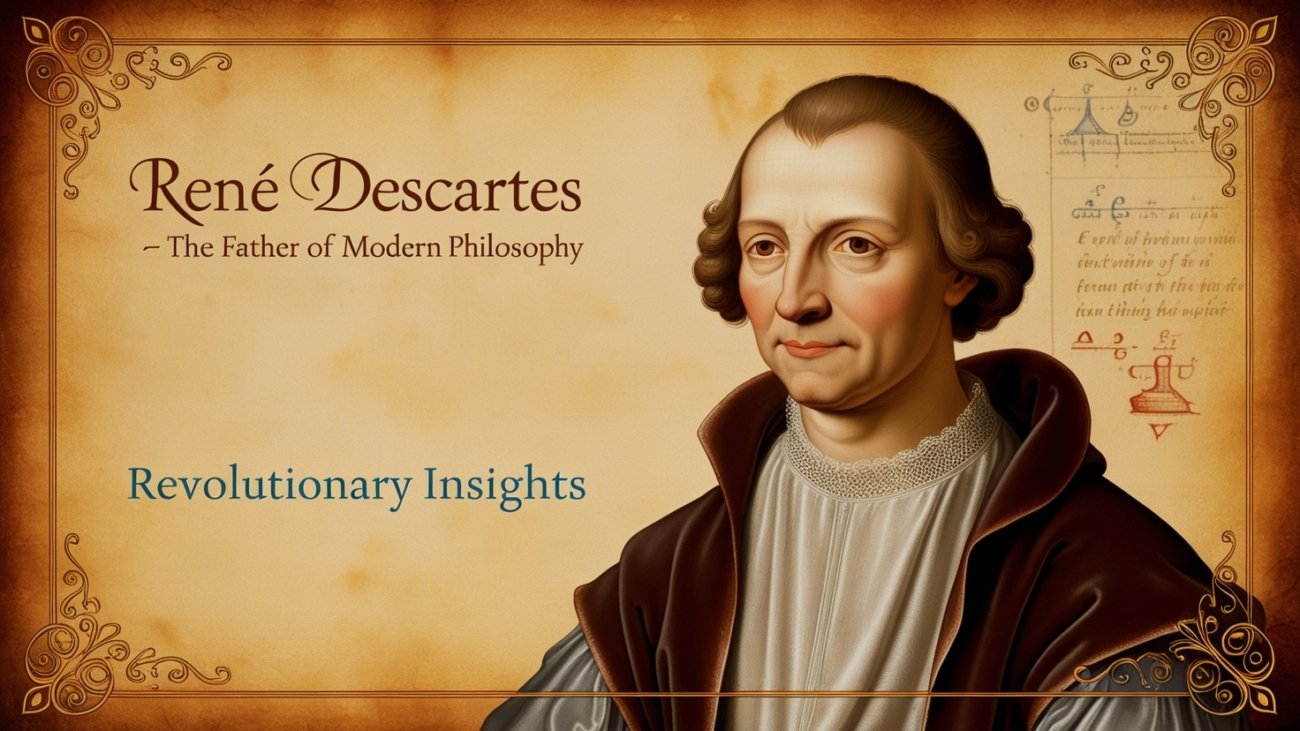
René Descartes (1596–1650) was a groundbreaking thinker whose ideas reshaped philosophy, science, and mathematics.
Known for his famous declaration ”Cogito, ergo sum” (“I think, therefore I am”), Descartes championed rational inquiry, skepticism, and the power of the human mind.
Beyond abstract philosophy, his wisdom offers practical guidance for critical thinking, self-discovery, and intellectual growth.
1. “I think, therefore I am.” (Cogito, ergo sum)
Descartes’ most famous statement establishes that doubt itself proves existence.
Even if all reality is an illusion, the act of thinking confirms that *you* exist as a conscious being.
Your ability to question and reason is the foundation of certainty.
2. “Doubt is the origin of wisdom.”
Descartes believed that true knowledge begins with skepticism.
Blindly accepting beliefs leads to error; questioning everything leads to truth.
Cultivate healthy doubt — it’s the first step toward real understanding.
3. “Divide each difficulty into as many parts as is feasible and necessary to resolve it.”
This principle, known as analytic reduction, is key to problem-solving.
Break complex issues into smaller, manageable parts.
Overwhelmed? Divide and conquer.
4. “It is not enough to have a good mind; the main thing is to use it well.”
Intelligence alone is useless without proper application.
Descartes valued methodical reasoning over raw intellect.
Train your mind like a muscle — apply it with discipline.
5. “The reading of all good books is like a conversation with the finest minds of past centuries.”
Descartes saw books as bridges to history’s greatest thinkers.
Learning from others accelerates wisdom.
Read deeply — you’re gaining centuries of knowledge in hours.
6. “Common sense is the most fairly distributed thing in the world, for everyone thinks he is so well supplied with it that even those who are hardest to satisfy in every other matter do not usually desire more of it than they already have.”
A witty observation on human overconfidence.
People rarely doubt their own judgment, even when wrong.
Question your assumptions — what seems obvious may be flawed.
7. “The greatest minds are capable of the greatest vices as well as the greatest virtues.”
Intelligence doesn’t guarantee morality.
Brilliance can be used for good or evil.
Cultivate wisdom *and* ethics — knowledge without virtue is dangerous.
8. “If you would be a real seeker after truth, it is necessary that at least once in your life you doubt, as far as possible, all things.”
Radical skepticism — questioning everything — was Descartes’ method for finding indubitable truths.
Periodically re-examine your deepest beliefs — are they truly valid?
9. “The two most common human errors are acting without thinking and thinking without acting.”
Impulsiveness and over-analysis are twin traps.
Descartes advocated balanced, deliberate action.
Think deeply, then act decisively.
10. “Perfect numbers like perfect men are very rare.”
Descartes (a mathematician) knew perfection is unattainable.
Progress, not flawlessness, is the goal.
Pursue excellence, not perfection — it’s a more humane standard.
Why Descartes’ Wisdom Still Matters Today
In an era of misinformation, snap judgments, and intellectual laziness, Descartes’ teachings are vital.
His principles teach us to:
– Question everything (but constructively)
– Break problems into solvable parts
– Balance thought with action
– Value reason over blind tradition
”The quest for truth begins with the courage to doubt.” — René Descartes

